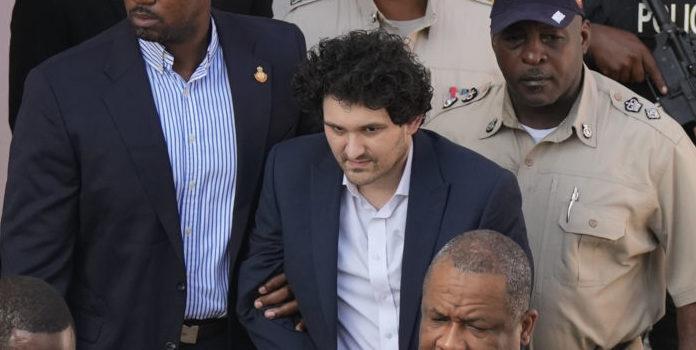(Headline USA) A federal judge showed growing impatience Thursday with FTX founder Sam Bankman–Fried’s use of the internet while on bail, suggesting that incarceration might eventually be the most effective way to prevent him from communicating on electronic devices in ways that can’t be tracked.
Judge Lewis A. Kaplan did not immediately change a $250 million bail package that lets Bankman–Fried live with his parents in Palo Alto, California, while preparing for trial on charges that he cheated investors and looted customer deposits at FTX, his cryptocurrency trading platform.
But he raised the possibility for the first time that jail might be the only way to ensure Bankman–Fried won’t try to outfox the government by communicating with potential witnesses via encrypted and untraceable platforms.
“There is a solution, but it’s not one anybody’s proposed yet,” Kaplan said as Bankman–Fried sat passively at the defense table.
He then noted that there may be many devices in Bankman–Fried’s family home that the government will not be tracking, even with any new rules imposed on his bail conditions.
“Why am I being asked to set him loose in this garden of electronic devices?” he asked prosecutors.
Assistant U.S. Attorney Nicolas Roos said a more “drastic alternative” would be to ban Bankman–Fried’s use of all electronic devices, but he added that it would be difficult for him to prepare for trial, tentatively set for October, if that were to occur.
The judge noted that Bankman–Fried, according to prosecutors, “has done things that suggests to me that maybe he has committed or attempted to commit a federal felony while on release.”
Kaplan was alluding to a claim by prosecutors that Bankman–Fried sent an encrypted message over the Signal texting app on Jan. 15 to the general counsel of FTX US.
According to prosecutors, the message said: “I would really love to reconnect and see if there’s a way for us to have a constructive relationship, use each other as resources when possible, or at least vet things with each other. I’d love to get on a phone call sometime soon and chat.”
Federal prosecutors have told Kaplan that Bankman–Fried’s communications indicate he may be trying to influence a witness with incriminating evidence against him.
On Thursday, prosecutors asked Kaplan to more severely limit Bankman–Fried’s use of electronic devices and the internet, including banning him from messaging applications and requiring the installation of a device monitoring program on his cellphone and computer.
A day earlier, they wrote in court papers that his “behavior shows that the existing conditions leave too much room for circumvention of restrictions aimed at preventing inappropriate conduct, including contacting witnesses and accessing cryptocurrency assets.”
They described him as “a technologically sophisticated person with both the ability and the inclination to seek workarounds of more narrowly drawn bail conditions.”
Mark Cohen, Bankman–Fried’s lawyer, called the proposals by prosecutors “draconian” requests that would make it hard for lawyers and the defendant to prepare for trial. But he soon found himself on the defensive as Kaplan noted his client’s apparent bail violations, including accessing an encrypted internet site to watch the Super Bowl.
The judge mocked Bankman–Fried’s use of an encrypted method to watch the game, noting that it was on any television. Cohen responded that there wasn’t a TV in the house.
“I think we understand your comments today, your honor, that there is no margin for error,” Cohen said. “That if there are any violations, we will be at a very different proceeding.”
Of the eventual bail restrictions, the judge said: “I want this to be tight, not just tight in characterization, but tight in fact.”
Bankman–Fried has been confined with electronic monitoring to his parents’ home since his December arrest on charges that he cheated investors and that diverted their deposits, in part to finance political donations and make risky trades at Alameda Research. He has pleaded not guilty.
Adapted from reporting by the Associated Press

